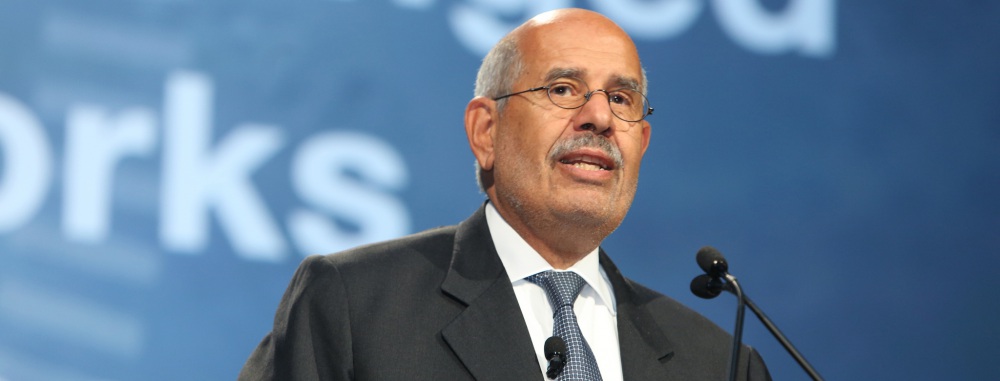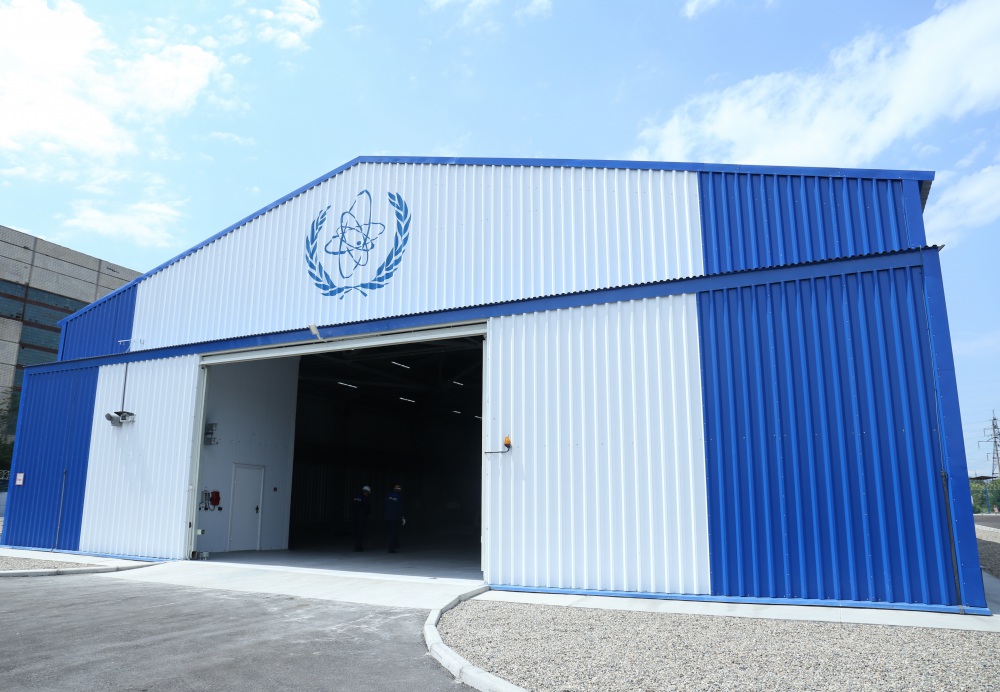
Warren E. Buffett
Chairman of the Board and Chief Executive Officer, Berkshire Hathaway
NTI/IAEA Fuel Bank Hits $100 Million Milestone; Kuwaiti Contribution Fulfills Buffett Monetary Condition
The international fuel bank proposed by the Nuclear Threat Initiative (NTI) exceeded its initial goal of $100 million in matching contributions today with a $10 million commitment from the government of Kuwait. The contribution brings the total committed to the fuel bank to approximately $157 million and fulfills the monetary condition established when NTI pledged $50 million, funded by NTI adviser Warren Buffett, to create a low enriched uranium stockpile managed by the International Atomic Energy Agency (IAEA).
“This is an exciting day for Warren Buffett and for all of us at NTI and a critical step toward making the fuel bank a reality,” said former Senator Sam Nunn, Co-Chairman of NTI. “We are very grateful for the leadership of Kuwait in showing the world how nuclear power can be advanced safely, without contributing to nuclear proliferation dangers. An IAEA-controlled fuel bank is essential to reducing global nuclear dangers because the same uranium enrichment technology that is used to make nuclear reactor fuel can also be used to make material for a nuclear weapon.”
Kuwait joins NTI, the United States government ($50 million), the European Union ($32 million), the government of the United Arab Emirates ($10 million), and the government of Norway ($5 million) in making contributions to the IAEA fuel bank, which was announced by NTI and Warren Buffett in September 2006. NTI´s $50 million contribution is contingent on 1) the IAEA receiving an additional $100 million in funding, or an equivalent value of low enriched uranium, to jump-start the reserve; and 2) the IAEA taking the necessary actions to approve establishment of the reserve. “We now have 31 states financially supporting the creation of an NTI/IAEA fuel bank, which is significant,” said Senator Nunn. “We are grateful for the continued leadership of IAEA Director General ElBaradei on this important issue and welcome his determination to work with member states to define the details of the fuel bank’s operation and bring it forward to the Board of Governors for review and approval by September 2009.”
NTI has been working to create a last-resort fuel reserve for nations that have made the sovereign choice to develop their nuclear energy based on foreign sources of fuel supply services and therefore have no indigenous enrichment facilities. With the growing global interest in nuclear power, a layered system of multinational fuel cycle mechanisms is essential to the safe and secure growth of nuclear energy.
“A country’s decision to rely on imported fuel rather than develop its own enrichment capacity may depend on whether there is a mechanism that guarantees an assured international supply of nuclear fuel on a nondiscriminatory, non-political basis to states that are meeting their non-proliferation obligations,” said NTI Vice President Laura Holgate, who has led this effort for NTI. “An IAEA/NTI fuel bank can help us achieve such a mechanism.”
The goal of this proposed initiative is to help make fuel supplies from the international market more secure by offering customer states, that are in full compliance with their nonproliferation obligations, reliable access to a nuclear fuel reserve under impartial IAEA control should their supply arrangements be disrupted. In so doing, it is hoped that a state's sovereign choice to rely on this market will be made more secure.
NTI is an international charitable organization dedicated to reducing the threats from nuclear, biological and chemical weapons. NTI has been a strong supporter of the work and mission of the IAEA. In September 2001, NTI made an initial contribution to help launch the Agency´s Nuclear Security Fund. Since that time, NTI has worked with the IAEA to support several other critical projects assisting member states secure nuclear materials and in building the Agency´s institutional capacity to continue and accelerate this work into the future.
###
Sign up for our newsletter to get the latest on nuclear and biological threats.
Read Nobel Laureate and former IAEA Director General Mohamed ElBaradei's statement on the inauguration of the IAEA LEU bank facility in Kazakhstan.
“The bottom line is that the countries and areas with the greatest responsibility for protecting the world from a catastrophic act of nuclear terrorism are derelict in their duty,” the 2023 NTI Index reports.
LEU Bank is model of international cooperation to reduce nuclear proliferation risks and build a safer world


